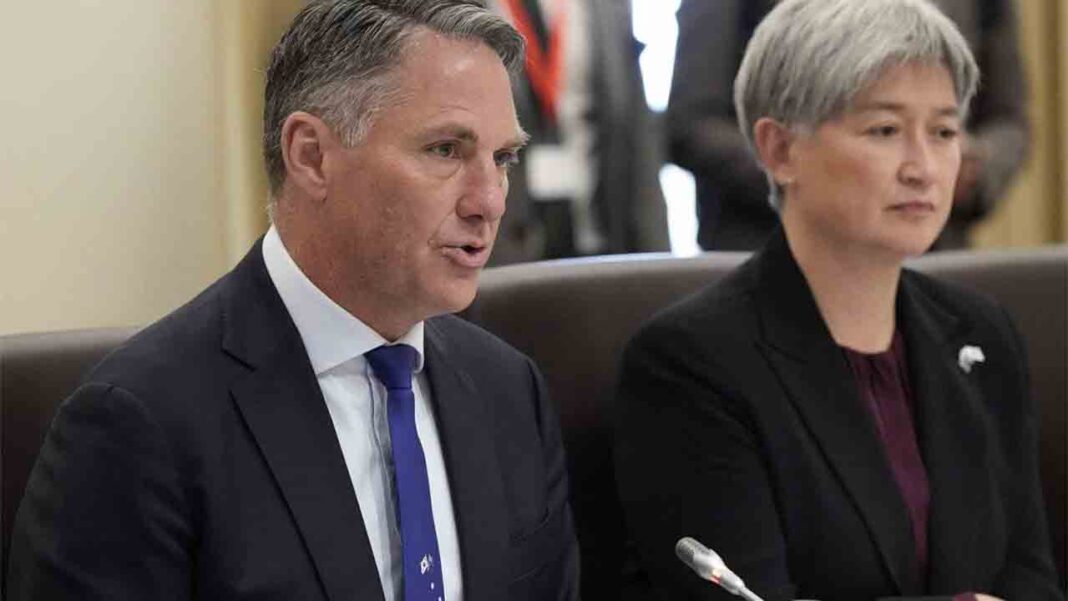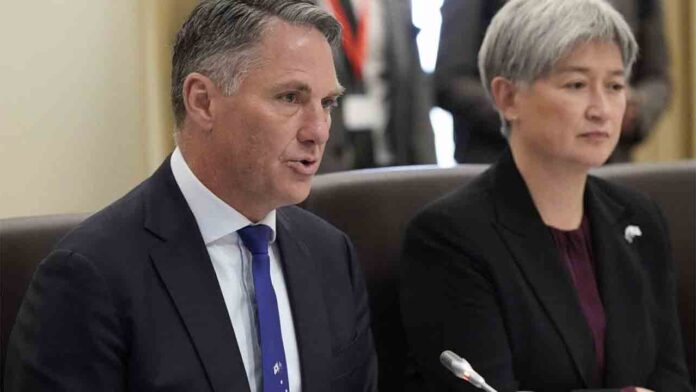The Australian government has announced the imposition of new targeted sanctions on five Iranian individuals and three entities, intensifying its response to Iran’s destabilizing activities in the Middle East. This move, declared on Tuesday, underscores Australia’s commitment to addressing international security threats posed by Iran.
Foreign Minister Penny Wong detailed the sanctions, which include significant figures within the Iranian defense and military sectors. Among those sanctioned are Iran’s Defense Minister Mohammad Reza Ashtiani and Brigadier General Esmail Qaani, Commander of the Iranian Revolutionary Guard Corps’ (IRGC) Qods Force. Also listed is Brigadier General Abdol Reza Abed, head of the IRGC’s contracting arm, Khatam al-Anbiya.
Additionally, former Defense Minister Amir Hatami, Iran Aircraft Manufacturing Industries’ Managing Director Mehdi Gogerdchian, and Major General Gholam Rashid have been targeted. These sanctions reflect Australia’s ongoing strategy to hold accountable those contributing to Iran’s military capabilities and regional interventions.
The government’s statement emphasizes that these latest measures bring the total to 90 Iranian-linked individuals and 100 entities now under Australian sanctions. This comprehensive approach is intended to pressure Iran into ceasing its activities that undermine regional stability and international norms.
The IRGC has long been identified as a significant threat to both international security and the well-being of Iranian citizens. According to the Australian Foreign Ministry, the newly sanctioned individuals and entities play crucial roles in Iran’s missile development and Unmanned Aerial Vehicle (UAV) programs. These technologies, proliferated by Iran, have been supplied to proxy groups, exacerbating instability throughout the Middle East.
Foreign Minister Wong reiterated Australia’s commitment to strategically applying pressure on Iran. She emphasized that these sanctions are part of a deliberate effort to curtail Iran’s malign activities and compel adherence to international law. This stance aligns with broader international concerns about Iran’s role in regional conflicts and its support for militant groups.
The sanctions on Defense Minister Ashtiani and other key officials are significant given their positions in advancing Iran’s military projects. Ashtiani, as the head of the Iranian defense apparatus, oversees extensive military development, while Qaani, leading the Qods Force, is instrumental in external operations, including support for allied militias in conflict zones.
Brigadier General Abed’s inclusion highlights the role of the Khatam al-Anbiya in Iran’s economic and military infrastructure projects. This organization, functioning as the economic arm of the IRGC, has been pivotal in sustaining Iran’s defense capabilities through various construction and development contracts.
The targeting of former officials like Amir Hatami and business leaders such as Mehdi Gogerdchian indicates a broad approach, addressing both current and past contributors to Iran’s military-industrial complex. This strategy ensures that those who have played significant roles in advancing Iran’s defense technologies face international repercussions.
Australia’s sanctions regime aims to disrupt the financial networks and operational capabilities of those involved in Iran’s missile and UAV programs. These programs have not only enhanced Iran’s military reach but also supplied technology to regional proxies, fueling conflicts and instability.
The statement from the Foreign Ministry underscores the importance of international cooperation in addressing the threats posed by Iran. By sanctioning individuals and entities involved in the proliferation of advanced military technologies, Australia is contributing to a global effort to constrain Iran’s aggressive posturing and support for militant activities.
In conclusion, Australia’s recent sanctions against high-profile Iranian officials and entities mark a decisive step in its foreign policy. These measures reflect a broader strategy to counteract Iran’s destabilizing influence in the Middle East and uphold international security standards. As Australia continues to impose and enforce these sanctions, it signals a robust commitment to confronting malign actors and promoting regional stability.







